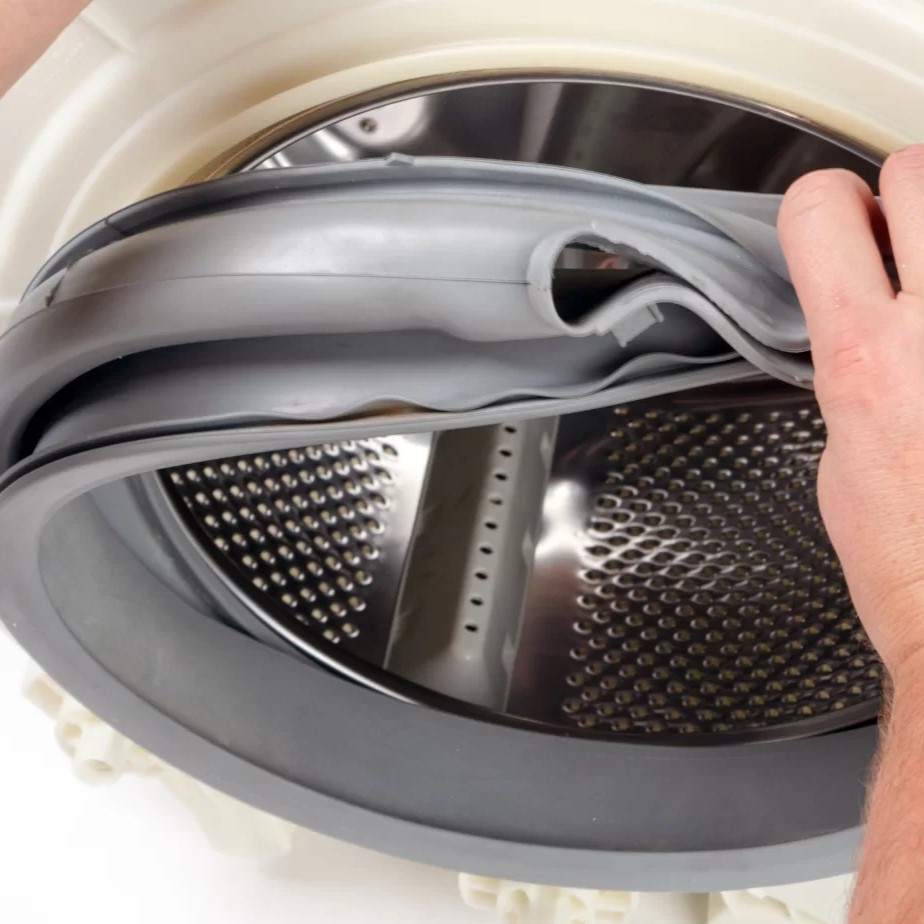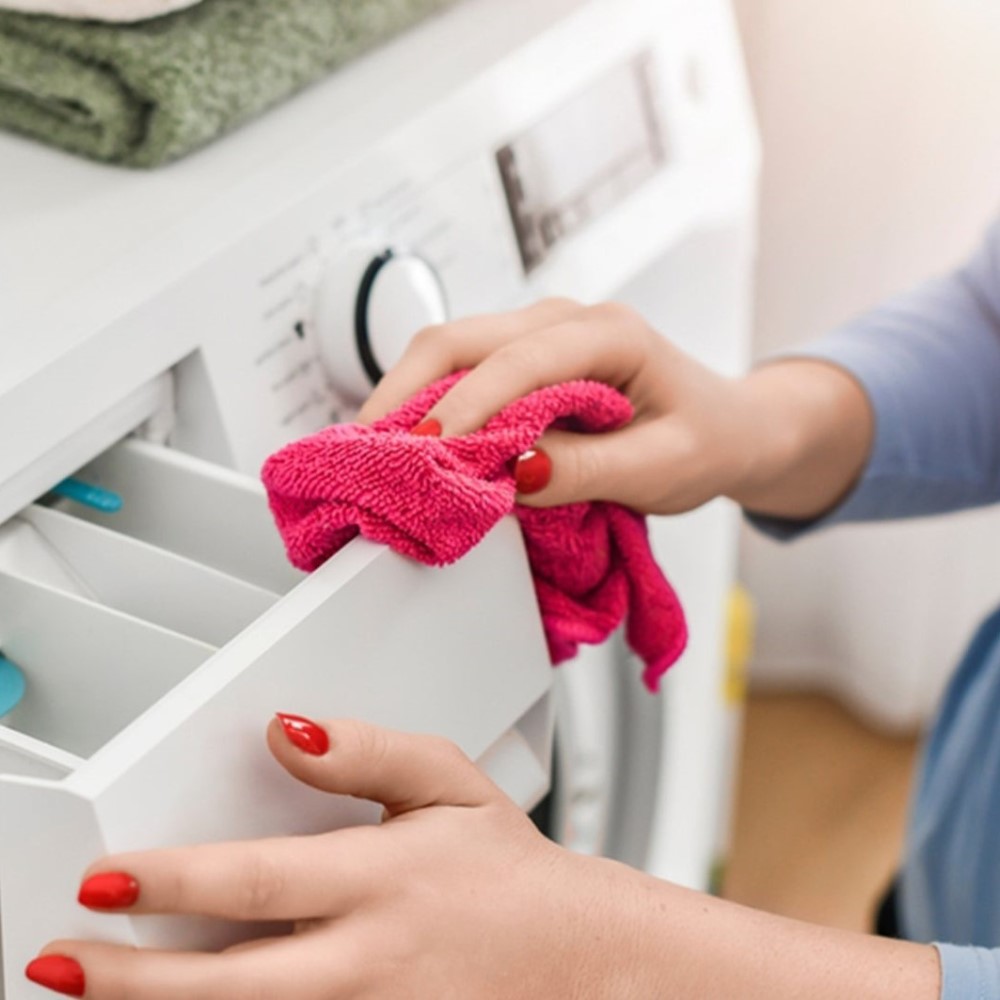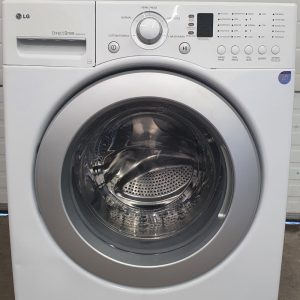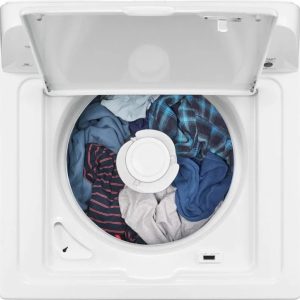Unveiling the Mystery: Why Does My Washing Machine Stink?
Introduction: Why Does My Washing Machine Stink?
Having a washing machine at home is a convenience that many of us appreciate. We rely on it to keep our clothes fresh and clean, yet sometimes, we encounter an unpleasant surprise: a frustrating odor emanating from the machine itself. You may find yourself asking, “Why does my washing machine stink?” This article delves into the various reasons behind this issue, explores preventative measures, and offers solutions to keep your laundry area smelling fresh.
Common Causes of Washing Machine Odors
Why does my washing machine stink? Understanding why your washing machine smells is key to solving the problem. Here are some frequent culprits:

- Mold and Mildew: Often form in damp environments, which are common inside washing machines.
- Built-up Residue: Over time, detergent, softeners, and laundry dirt can leave a sticky residue.
- Poor Drainage: A washing machine that doesn’t drain well may start to smell.
- Incorrect Detergent: Using the wrong detergent can cause excess suds and residue.
- Dirty Lint Filter: A clogged lint filter can trap odors inside the machine.
Both front-load and top-load washers are prone to odors, but for different reasons. Front-load machines may harbor water in the door seal’s folds, while top-load washers might collect dirt in nooks and crannies. Regular cleaning routines can help prevent these issues from occurring.
Cleaning the Inside: Step-by-Step Guide
If your washing machine emits a bad odor, follow this simple guide to clean the insides effectively.
- Remove and Clean Dispensers: Start with the soap, fabric softener, and bleach dispensers. Remove them if possible and scrub with warm water and a toothbrush.
- Wipe Down the Interior: Use a damp cloth to wipe the inside of the drum. Reach into corners and around the agitator (if applicable).
- Clean the Gasket: For front-loaders, clean the rubber door gasket with a cloth dampened with vinegar or mildew cleaner.
- Run a Hot Water Cycle: Set the machine to the hottest, longest setting. Add 2 cups of vinegar or 1/2 cup of bleach – never both together. Let it run without any clothes inside.
- Pause the Cycle: Let the machine sit with the hot water and cleaning agent for 30 minutes, then resume the cycle.
- Rinse Thoroughly: After the cycle finishes, run another hot water cycle with just water to rinse any remaining cleaning agent.
- Wipe Down Again: Once done, wipe the interior again with a dry cloth to ensure no moisture is left.
- Keep the Door Open: After cleaning, leave the door slightly open to let air circulate and prevent moisture buildup.
Remember to follow these steps regularly to prevent odors from returning, and always refer to the manufacturer’s instructions for model-specific advice.
Importance of Cleaning the Door Seal
Cleaning the door seal is a crucial step in maintaining a fresh-smelling washing machine. The door seal, particularly on front-loading washers, can trap moisture, leading to mold and mildew. This can cause your machine to emit an unpleasant smell. To prevent this, wipe the door seal with a dry cloth after each wash. You can also use a mildew spray or a solution of water and vinegar to clean deeper. Aim to clean the door seal at least once a week to keep it in good condition.
Regularly inspect the seal for trapped items like hair or small pieces of fabric. These can contribute to bad smells and affect the seal’s integrity. By paying attention to the door seal, you ensure your washing machine stays odor-free and functions properly. Remember, a clean door seal is the first defense against washing machine odors.
Performing a Maintenance Wash
Performing a maintenance wash is a key step in combating washing machine odors. Here’s a simple process to follow:
- Run an Empty Hot Cycle: Set your washer to its hottest setting and start a cycle without any laundry.
- Add a Cleaning Agent: Use either baking soda or white vinegar. Avoid mixing them or using bleach in the same cycle.
- Pause for Effect: After the washer fills with hot water and your chosen cleaner, pause the cycle. Let it soak for 30 minutes.
- Complete the Wash: After soaking, continue the cycle until it completes. This helps remove hidden grime.
- Rinse If Needed: If you detect any lingering smells, run an additional hot water cycle.
- Dry the Washer: After the cycles, leave the door open and allow the washer to air-dry.
Experts suggest doing a maintenance wash once a month. It can help prevent bacteria and odor build-up. Using the right temperature is crucial, as hotter water can better dissolve residues. Keep your washer fresh and your clothes smelling clean with regular maintenance washes.
Checking and Clearing the Standpipe
One often overlooked part of washing machine maintenance is inspecting the standpipe. This pipe, where wastewater exits, can cause odors if blocked. Here’s how to check and clear it:
Identifying Standpipe Issues
Look for slow draining or water backing up as signs of blockage. A foul smell near the pipe could also indicate a problem. If you identify these issues, it’s time to act.
How to Clear the Standpipe
- Unplug Your Washer: Safety first. Always unplug the machine before starting.
- Locate the Pipe: Find the standpipe. It’s usually behind or beside the washer.
- Inspect for Clogs: Wear gloves and check the standpipe and drain hose for visible blockages.
- Use a Drain Snake: Carefully insert a drain snake to remove any obstruction inside the pipe.
- Flush with Water: Once clear, flush the standpipe with hot water to verify it’s unblocked.
- Reattach Hose: Place the washer’s drain hose back securely.
- Run a Test Cycle: With everything reconnected, run a quick cycle to ensure proper drainage.
By regularly checking and clearing the standpipe, you can prevent odors related to drainage issues. If problems persist after these steps, consider hiring a plumber. It’s essential to maintain all washer parts, including the standpipe, to keep your machine fresh and functional.
 Tips for Choosing the Right Detergent
Tips for Choosing the Right Detergent
Choosing the right detergent is critical for keeping your washing machine odor-free. Here are some tips to help you make the right choice:
- Check Manufacturer Recommendations: Always start by checking your washing machine’s manual. Manufacturers often suggest specific types of detergents for optimal performance.
- Opt for High-Efficiency (HE) Detergents: If you have a high-efficiency washer, use HE detergents. These are designed to create fewer suds and are easier to rinse out, preventing residue.
- Measure Carefully: Use the correct amount of detergent. Too much can leave a residue, and too little may not clean effectively. Measuring cups can help you use just the right amount.
- Consider Liquid Detergents: Liquid detergents tend to dissolve more easily than powders. This can reduce the chances of undissolved detergent leaving a residue that causes odors.
- Avoid Excessive Softeners: Fabric softeners can build up over time, leading to smells. If you must use them, opt for dryer sheets or reduce the amount of liquid softener.
By following these detergent tips, you can help keep your washing machine smelling fresh and ensure your laundry comes out clean.
Keeping the Drum and Gasket Dry
Ensuring your washing machine’s drum and gasket are dry can significantly reduce odor-causing agents. Here’s how to keep them dry:
After Each Use
- Remove Laundry Promptly: Take out your clothes as soon as the wash cycle finishes.
- Leave the Door Open: Let air circulate by keeping the washer door ajar.
- Wipe the Drum: Use a clean, dry towel to absorb any residual moisture.
Weekly Maintenance
- Check for Water: Inspect the drum and gasket for leftover water after the last load.
- Dry Off the Gasket: Thoroughly dry the gasket with a cloth and use a vinegar solution if needed for extra cleaning.
Additional Tips
- Use Fans: Increase airflow in damp laundry areas with fans.
- Consider a Dehumidifier: Reduce humidity with a dehumidifier to help keep the drum and gasket dry.
- Check for Leaks: Make sure there are no leaks causing excess moisture.
By following these simple steps to keep your washer’s drum and gasket dry, you’ll be on your way to a fresher, cleaner-smelling appliance.
Preventative Measures to Keep Your Washing Machine Fresh
Ensuring your washing machine remains fresh requires consistent upkeep. Here are preventive tips to keep odors at bay:
Regular Cleaning Routine
- Wipe it Down: After each use, clean the door, gasket, and drum with a dry cloth.
- Monthly Deep Clean: Use vinegar or a dedicated washer cleaner for a thorough monthly clean.
- Clear Dispensers: Regularly remove and rinse out detergent and softener dispensers.
Proper Use of Detergents
- Follow Guidelines: Stick to manufacturer-suggested detergent types and amounts.
- Avoid Excess: Using too much detergent or fabric softener can cause residue build-up.
Ventilation and Dryness
- Air it Out: Keep the washing machine door and detergent dispenser drawer open when not in use.
- Check for Leaks: Resolve any leaks promptly to prevent moisture accumulation.
Service Washes
- Hot Cycles: Run an empty hot water cycle monthly to dissolve any lingering residue.
By adopting these preventative strategies, your washing machine will stay clean and smell fresh, keeping your clothes and your home environment pleasant. Implement these simple actions as part of your routine, and you’ll enjoy the benefits of a well-maintained appliance.
 Conclusion: Why Does My Washing Machine Stink?
Conclusion: Why Does My Washing Machine Stink?
In summary, there are several reasons why your washing machine might develop an unpleasant smell. Factors such as the accumulation of detergent residues, trapped water, mold and mildew growth, dirty filters, and incorrect wash settings all contribute to the issue. By understanding the causes and proactively addressing them through regular maintenance, inspecting laundry before washing, and properly using the machine, you can keep your washing machine smelling fresh.
While it may seem like a minor inconvenience, neglecting this odor can lead to bigger problems down the line. Therefore, it’s vital to take your washing machine’s health seriously. Simply put, understanding why your washing machine stinks is the first step toward maintaining a pleasant and efficient laundry routine. Why does my washing machine stink? By following these guidelines and keeping a vigilant eye on your appliance, you can enjoy clean, fresh laundry without the accompanying odors.

